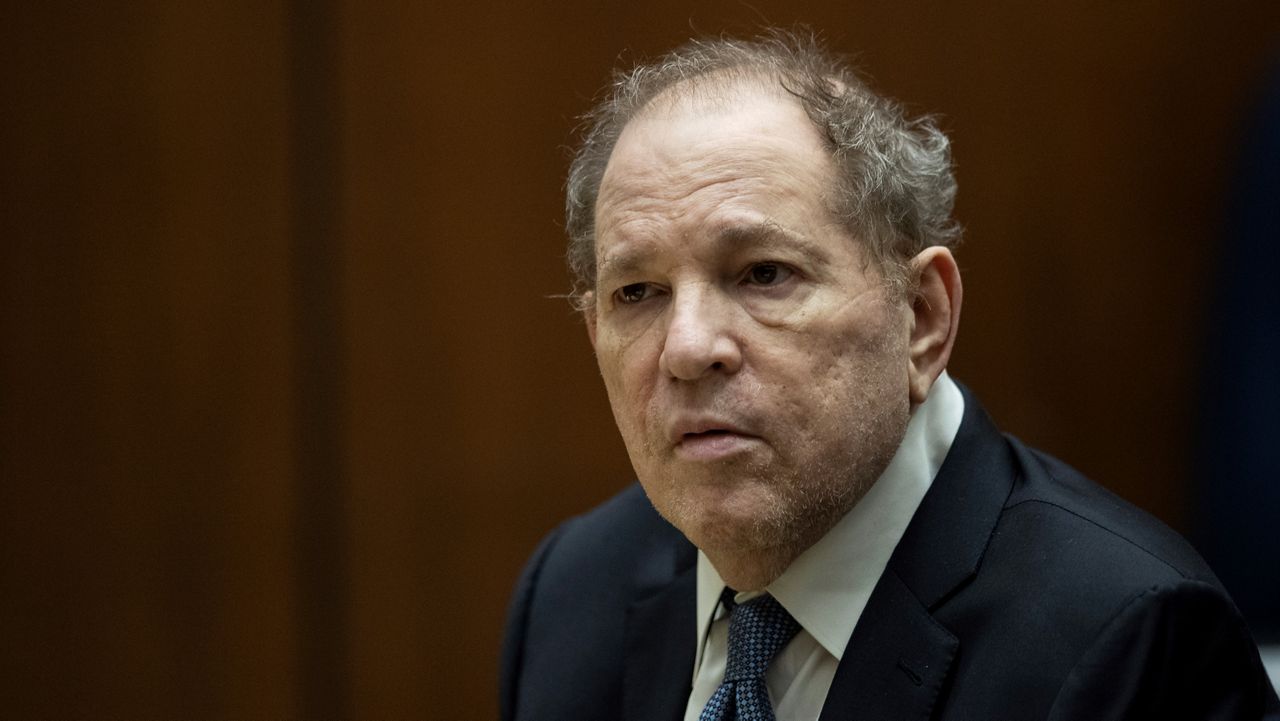LOS ANGELES (AP) — Jennifer Siebel Newsom, a documentary filmmaker and actor who is married to California Gov. Gavin Newsom, is among the accusers of Harvey Weinstein who will testify at his rape and sexual assault trial that began Monday, her attorney said.
What You Need To Know
- Jury began started Monday for Weinstein's second trial
- Newsom's attorney released a statement saying she “intends to testify at his trial in order to seek some measure of justice for survivors"
- Newsom wrote about her experience with Weinstein in a 2017 essay in the Huffington Post after the New York Times and New Yorker stories made him a magnet of the #MeToo movement
- Weinstein, who is already serving a 23-year sentence for a conviction in New York, is charged with 11 counts of rape and sexual assault. He has pleaded not guilty
“Like many other women, my client was sexually assaulted by Harvey Weinstein at a purported business meeting that turned out to be a trap," Newsom's attorney Elizabeth Fegan said in a statement. “She intends to testify at his trial in order to seek some measure of justice for survivors, and as part of her life’s work to improve the lives of women.”
Weinstein, the 70-year-old former movie mogul who is serving a 23-year prison sentence after a conviction in New York, has pleaded not guilty to 11 counts of rape and sexual assault involving Newsom and four other women. All of them will testify as Jane Doe during the eight-week trial in a Los Angeles court, where jury selection began Monday.
The Associated Press does not normally name people who say they’ve been sexually abused, but Newsom agreed to be named through her attorney.
The news of her involvement was first reported by The Los Angeles Times.
Newsom, 48, appeared in small roles in dozens of films and television shows between 2002 and 2011. Recently she has directed documentaries including “The Great American Lie” in 2020 and “Fair Play” from this year. Both deal with gender in society.
She wrote about her experience with Weinstein in a 2017 essay in the Huffington Post after the New York Times and New Yorker stories made him a magnet of the #MeToo movement, but gave few details.
Weinstein, who is being held in a Los Angeles County jail, was brought Monday into court in a wheelchair through a side door, and climbed from it carefully into a seat next to one of his lawyers at the defense table. He was wearing a blue suit, which he is allowed to change into from his jail attire during the trial.
He stood with the rest of the room as the first panel of 67 prospective jurors were brought in, but sat down about halfway through the process. He waved at them from his seat when his lawyers introduced them.
The jurors were given a lengthy questionnaire intended to screen out those who need to be dismissed. Both the questions and answers on the forms are private, but previous hearings on its contents revealed that it contains questions on how much media coverage of Weinstein they have seen, and whether they have formed opinions from it, though the judge rejected questions on specific stories and media outlets.
The prosecution will be allowed to introduce as evidence parts of Weinstein's New York conviction for rape and sexual assault.
The questionnaire also includes a question about a California law that says the testimony alone of a sexual assault victim can be sufficient evidence to convict if a juror believes them.
The jurors were also given a long list of names of witnesses in the coming trial, including those of the accusers to determine whether they have any connection to them. The initial witness list in the case had more than 270 names, though fewer than half that are expected. Most of the prospective witness list has not been made public.
One witness, Barbara Schneeweiss, a producer on “Project Runway” and other television shows, was present in court early Monday and was told by a judge she was on call to come in at any time.
Two more panels of up to 75 jurors will be brought in Tuesday and Wednesday. Questioning of individual jurors is not expected to begin until next week, and opening statements may not begin for two weeks.
The trial comes five years after women's stories about Weinstein made the #MeToo movement explode.
Weinstein is charged with four counts of rape and seven other sexual assault counts.
Most of the incidents in his indictment, like Newsom's, happened under the guise of business meetings at luxury hotels in Beverly Hills and Los Angeles, which Weinstein used as his California headquarters and where he could be seen during awards season and throughout the year. Four of them occurred during Oscars week 2013, when Weinstein releases “Silver Linings Playbook” and “Django Unchained” would win Academy Awards.



